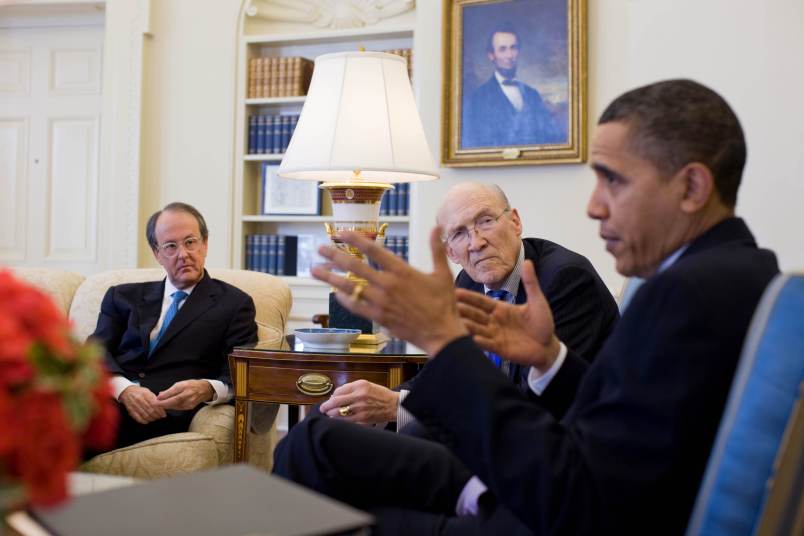Republicans on President Obama’s fiscal commission, which is tasked with coming up with ways to reduce the deficit, have privately argued in official meetings that the panel should recommend further corporate and capital gains tax cuts as part of its mandate. The panel has been charged with raising revenues and cutting spending, to bring the federal budget into greater balance. But if Republican members are successful, their advocacy would result in either an unbalanced report, dedicated wholly to spending and benefit cuts — or to gridlock and, thus, no recommendations at all.
At a tax reform working group meeting last week, Republicans argued against every possible tax increase. According to one source familiar with the deliberations, Republicans were even opposed to eliminating loopholes, exemptions, credits and other so-called “tax expenditures” unless the associated revenue increase could be used to lower capital gains and corporate income rates.
“Republicans have not even said that we should get any revenue from taxes,” the source said. “Even tax expenditures. They appear to want to use the savings on tax expenditures to cut corporate taxes. So shared sacrifices — except for large corporations who make out even better.”
That could dramatically hamstring the commission. Thus far, the working group meetings have focused on discretionary and mandatory spending — and reports suggest two things very clearly: Republicans and some Democrats on the committee are willing to recommend benefit cuts to popular programs, including Social Security, and, possibly, Medicare. But as onerous as those options are to progressive critics of the commission, they’ve always been premised on the understanding that they only get the green light if paired with commensurate tax reform, making the tax code more progressive and broader-based.
That’s now in jeopardy.
“What if it’s unbalanced? Who walks away first?” the source asks rhetorically.
The tax reform working group is co-chaired by Rep. David Camp (R-MI), the top GOP tax guy in the House, and Sen. Kent Conrad (D-ND), the Democrats’ budget leader in the Senate. Despite Conrad’s efforts, the source said, a Thursday meeting of the group was “not encouraging.”
“Camp’s staff has been incredibly difficult, and it appears he’s just trying to slow down this working group so that come November (when we’ll actually start actual work) the commission will mainly have spending cut options,” the source says.
At one point, the Republicans’ intransigent approach to the issue of taxation won them a rebuke from a frustrated Conrad, according to the source.
Many of the conservatives on the commission have publicly suggested they’re opposed to any tax increases. In fact, the commission is broadly tilted to the right. But some speculated that the private nature of the bipartisan meetings would yield small areas of compromise to at least partially offset projected deficits.
But now two questions hang over the commission: Will the elected Republicans on the panel stand firm against any tax cuts? And if so, will Democrats then reject an unbalanced proposal based only on spending and benefit cuts? Or will the commission simply yield nothing.






